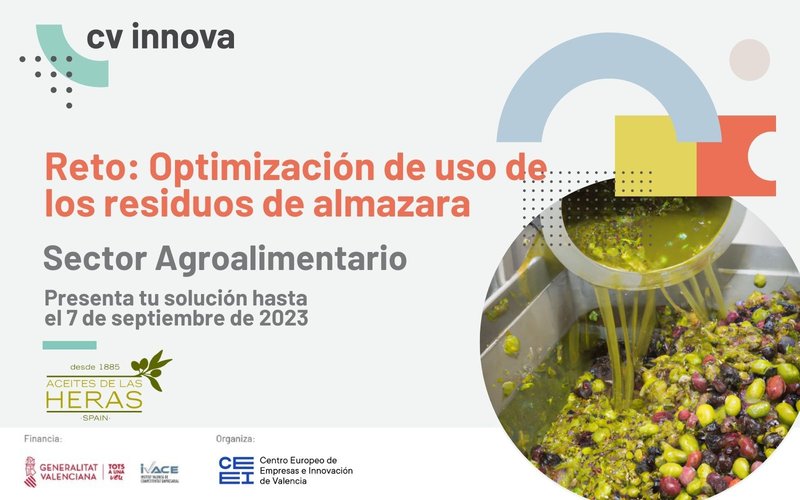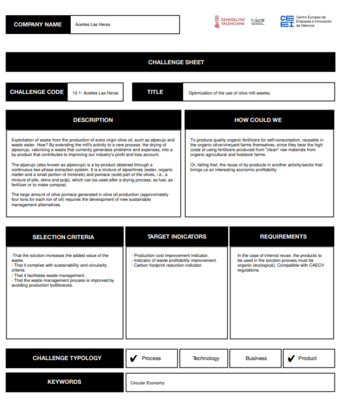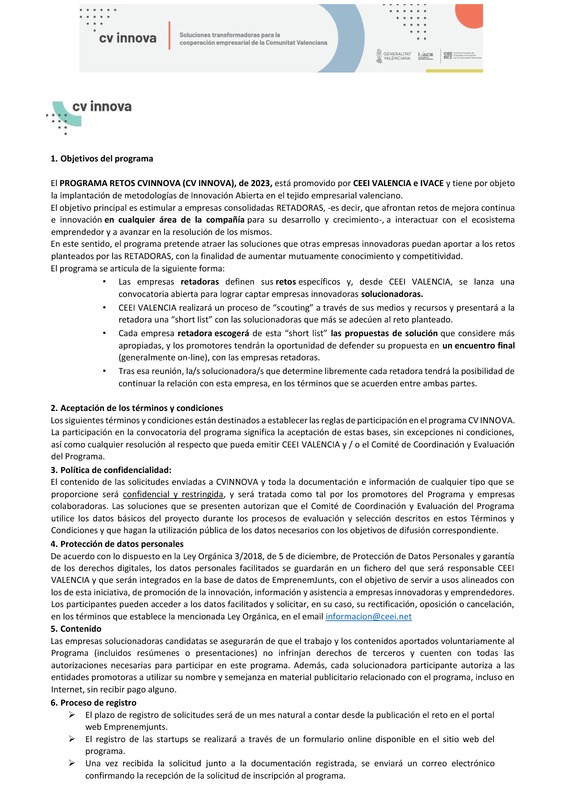Optimization of the use of olive mill wastes
* Este contenido se encuentra ACTIVADO y en HISTORICO desde 06-08-2023 14:17
Categoría: | CV Innova |
Fecha Límite: | 07 de septiembre de 2023 |
Centro Europeo de Empresas e Innovación de Valencia
Publicado el viernes, 07 de julio de 2023 a las 14:17
Exploitation of waste from the production of extra virgin olive oil, such as alperujo and waste water. How? By extending the mill's activity to a new process: the drying of alpeorujo, valorizing a waste that currently generates problems and expenses, into a by-product that contributes to improving our industry's profit and loss account. The alperujo (also known as alpeorujo) is a by-product obtained through a continuous two-phase extraction system.
It is a mixture of alpechines (water, organic matter and a small portion of minerals) and pomace (solid part of the olives, i.e., a mixture of pits, skins and pulp), which can be used after a drying process, as fuel, as fertilizer or to make compost. The large amount of olive pomace generated in olive oil production (approximately four tons for each ton of oil) requires the development of new sustainable management alternatives.
HOW COULD WE...?
To produce quality organic fertilizers for self-consumption, reusable in the organic olive/vineyard farms themselves, since they bear the high costs of using fertilizers produced from "clean" raw materials from organic agricultural and livestock farms. Or, failing that, the reuse of by-products in another activity/sector that brings us an interesting economic profitability.
PROPUESTAS DE SOLUCIÓN:
07/07/2023 14:17 | AdmonVlc




